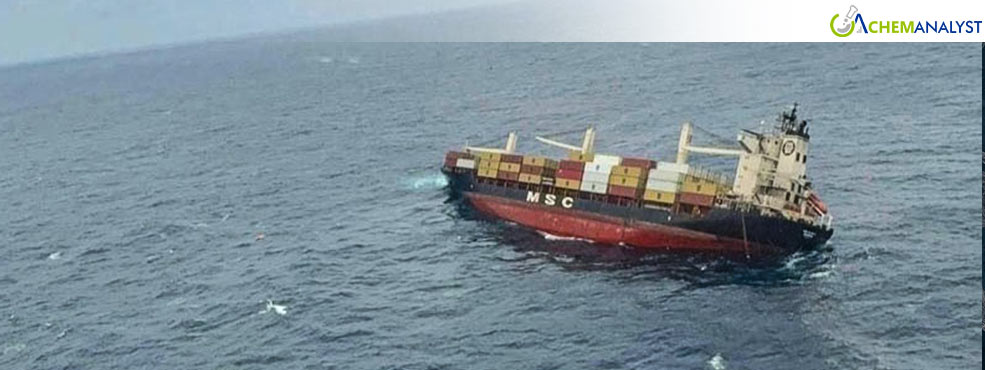Welcome To ChemAnalyst

A major environmental crisis is unfolding off the coast of Kochi after the Liberian-flagged container ship, MSC ELSA 3, sank on Sunday, May 25, 2025. The vessel, en route from Vizhinjam to Kochi, developed a severe 26-degree starboard list due to flooding before succumbing to the sea approximately 38 nautical miles southwest of Kochi port, India. All 24 crew members were safely rescued in a coordinated operation by the Indian Coast Guard (ICG) and the Indian Navy's INS Sujata, but concerns are mounting over the ecological fallout from its dangerous cargo.
The MSC ELSA 3 went down with 640 containers, a significant portion of which includes 13 with hazardous materials and 12 specifically carrying calcium carbide. Adding to the peril, the ship was also loaded with 84.44 metric tons of diesel and 367.1 metric tons of furnace oil, raising fears of a substantial oil spill.
The Kerala State Disaster Management Authority (KSDMA) has issued a statewide public warning, urging residents and fishermen to avoid touching any containers or oil that may wash ashore. Initial reports indicate that leaked fuel is moving at approximately three kilometers per hour, amplifying concerns about its potential impact along Kerala's delicate coastline. In response, fishing activities have been suspended within a 20-nautical-mile radius of the wreck.
The Indian Coast Guard has swiftly deployed its pollution response ship 'Saksham' and is utilizing aircraft equipped with advanced oil spill mapping technology to monitor the affected area. The vessel was also carrying Marine Gas Oil (MGO) and Very Low Sulphur Fuel Oil, further necessitating rigorous surveillance.
The most pressing concern for the marine ecosystem is the presence of calcium carbide (CaC2). This colorless solid, typically used to generate acetylene gas and as an artificial fruit ripener, reacts rapidly and intensely upon contact with water. The chemical reaction produces highly flammable acetylene gas and calcium hydroxide, while also emitting a considerable amount of heat.
The implications for marine life are significant. The generated calcium hydroxide, or slaked lime, raises the alkalinity of the water, potentially disrupting aquatic ecosystems by altering crucial pH levels. Marine organisms are highly sensitive to changes in pH, which are vital for their health, reproduction, and overall survival. The release of acetylene gas into the water bodies can also compromise water quality, especially in areas utilized for drinking or agricultural purposes. Furthermore, studies have shown that calcium carbide itself can be toxic to aquatic organisms.
We use cookies to deliver the best possible experience on our website. To learn more, visit our Privacy Policy. By continuing to use this site or by closing this box, you consent to our use of cookies. More info.
